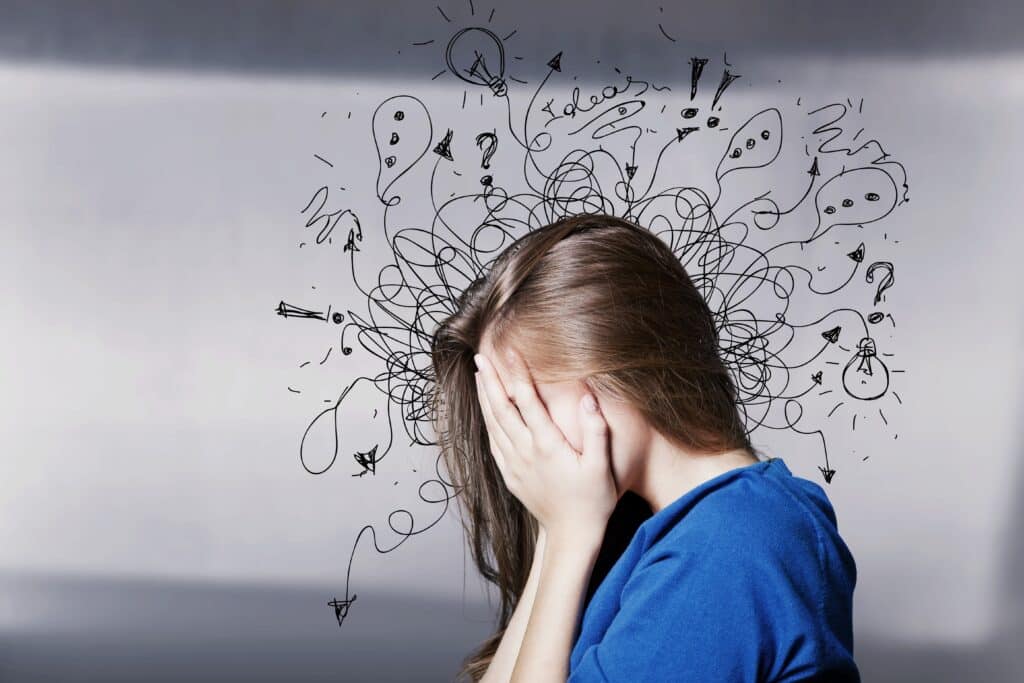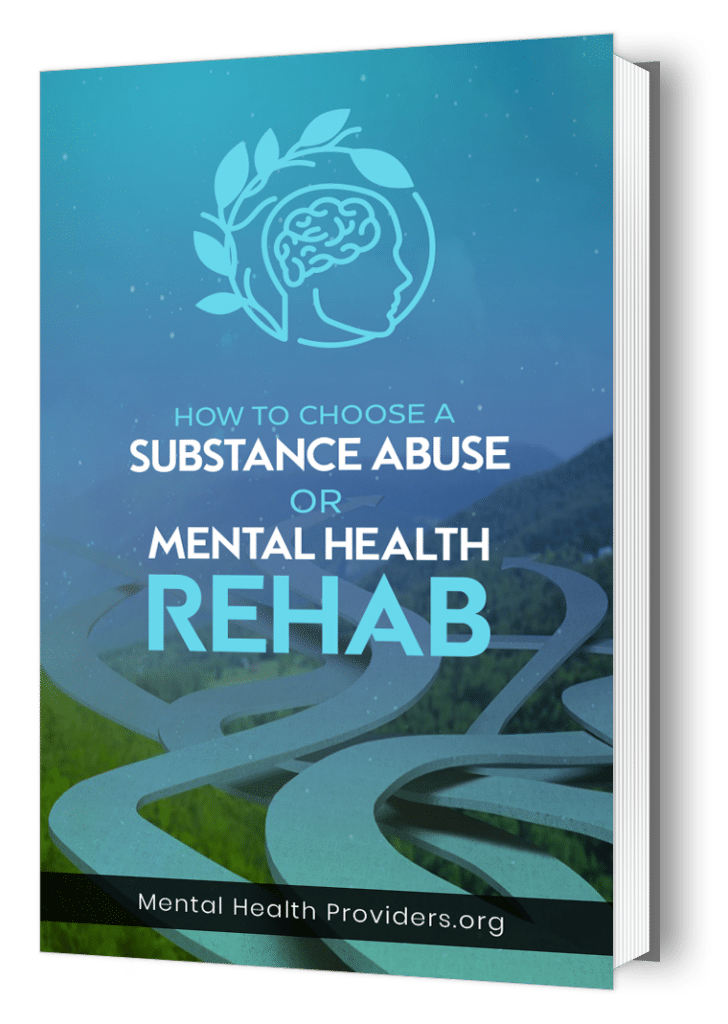
Anxiety
- Last Updated: May 12, 2023
Anxiety is a common mental health condition that affects millions of people worldwide. It is a normal stress reaction and can be beneficial in certain situations, such as helping you stay focused during a presentation or making quick decisions in an emergency. However, when Anxiety becomes chronic and interferes with your daily life, it can escalate into a more severe condition that requires professional help and treatment. In some cases, Anxiety can become so severe that it can lead to addiction and substance abuse, which may require rehabilitation. Understanding the signs and symptoms of severe Anxiety and seeking timely help can prevent the condition from spiraling out of control and improve the chances of successful recovery. If you are ready to locate help, please visit our free treatment directory to find Anxiety treatment near your zip code.
Symptoms of Anxiety
- Excessive worry or fear
- Restlessness or feeling on edge
- Fatigue or exhaustion
- Difficulty concentrating
- Irritability or mood swings
- Muscle tension or aches
- Difficulty sleeping or staying asleep
- Panic attacks or sudden feelings of terror
- Avoidance of certain situations or activities
- Obsessive or intrusive thoughts
Anxiety symptoms are the internal experiences and sensations that someone with Anxiety might feel or perceive. These symptoms can vary in severity and frequency and can be challenging to manage.
Signs of Anxiety
- Increased heart rate or palpitations
- Sweating or trembling
- Shortness of breath or feeling smothered
- Nausea or abdominal discomfort
- Dizziness or lightheadedness
- Chest pain or discomfort
- Fidgeting or pacing
- Shaking or trembling
- Avoiding eye contact or withdrawing from social situations
- Hypervigilance or feeling on guard
Signs of Anxiety are the observable behaviors or physical reactions that can indicate the presence of Anxiety. Others can notice these signs and provide crucial information for identifying and treating Anxiety.
Anxiety Treatment Options
Cognitive-Behavioral Therapy (CBT) is a widely used form of talk therapy that helps individuals identify and change negative thought patterns and behaviors associated with Anxiety. CBT focuses on changing how individuals think and behave in response to Anxiety triggers. Through therapy sessions, individuals learn coping mechanisms to manage their Anxiety symptoms, which can help improve their overall well-being. Exposure therapy is a type of CBT that gradually exposes individuals to the objects or situations that trigger their Anxiety, helping them develop coping mechanisms.
Medication can be an effective tool for managing severe Anxiety symptoms. Antidepressants and anti-Anxiety drugs can help regulate the levels of neurotransmitters in the brain, which can alleviate Anxiety symptoms. Medication is typically prescribed in combination with therapy, as it can help individuals better manage their symptoms while they work on developing coping mechanisms in treatment.
Holistic Therapies, such as meditation, yoga, and acupuncture, can complement traditional therapy and help individuals manage their Anxiety symptoms. Meditation and yoga focus on breathing techniques and relaxation, which can help reduce Anxiety symptoms. Acupuncture involves the insertion of tiny needles into specific points on the body to promote a sense of calm and balance the body’s energy.
Residential Treatment and Rehab Programs For individuals with severe Anxiety disorders, residential treatment, and rehab programs may be necessary to receive comprehensive and intensive care. These programs provide a supportive environment for individuals to work on their Anxiety symptoms through various therapies, including individual therapy, group therapy, and medication management. In addition to traditional treatments, these programs may offer holistic therapies and activities to help individuals manage their Anxiety symptoms and improve their overall well-being. Call for Immediate Assistance1-888-546-6005
Your Recovery Starts Today!
Treatment Alternatives
While one of the most common treatments for Anxiety is therapy, many self-care strategies can also help manage stress. These include practicing relaxation techniques, such as deep breathing and mindfulness meditation, regular exercise, maintaining a healthy diet, and getting enough sleep. Individuals can learn to manage their Anxiety and improve their well-being with the right therapy, treatment, and rehab options.
For many people, someone is willing to assist with their journey to recovery. You may have even heard friends or family members say, “Your Anxiety is lying to you.” When you hear things like that, it’s important to remember that most people want to help you, even if sometimes their comments sound harsh. Chances are they have either forgotten what it’s like to be in your shoes or have never been in the same position. Instead of waiting for the next time Anxiety rings, explore treatment options in your area today.
It’s important to remember that everyone’s experience with Anxiety is unique, and what works for one person may not work for another. However, with the proper treatment and support, many people with Anxiety can live fulfilling lives and manage their symptoms effectively.
Frequently Asked Questions About Anxiety
Access our free, user-friendly directory to locate Anxiety treatment near your zip code. We have therapists and treatment centers all over the U.S. that have been carefully vetted to ensure we have the best quality options for you.
If you’re experiencing treatment-resistant anxiety, seeking help from a mental health professional who can evaluate your situation and recommend appropriate treatment options is essential. Here are some general strategies that may be helpful:
- Explore alternative therapies: If traditional treatments such as medication and cognitive-behavioral therapy (CBT) have not been effective for you, consider exploring alternative therapies such as mindfulness meditation, acupuncture, or yoga.
- Consider medication: While some people may not respond to traditional medicines for anxiety, other drugs may be helpful. Talk to your doctor or mental health provider about your options.
- Address underlying issues: Sometimes anxiety is a symptom of an underlying problem such as trauma, unresolved emotional conflicts, or a personality disorder. Addressing these underlying issues may help reduce anxiety symptoms.
- Seek support: Joining a support group or talking to friends and family who understand what you’re going through can be helpful. You may also want to consider working with a therapist specializing in anxiety.
- Focus on self-care: Self-care is vital for managing anxiety. Ensure you’re getting enough sleep, eating a healthy diet, exercising regularly, and taking time to do things you enjoy.
Remember, treatment-resistant anxiety can be challenging, but it’s important to keep trying and to seek support from mental health professionals who can help you find effective treatment options.
From our free Anxiety treatment directory, please select the best treatment center. Each treatment center is different, so it’s best to contact them individually for payment plan information.
This varies by the treatment center. Our portal to find the best Anxiety rehab treatment center near your zip code is the best place to start.
By adhering to the guidelines below, you tip the scales in your favor for preventing Anxiety relapses:
- Maintain a healthy lifestyle: Exercise regularly, eat a well-balanced diet, get enough sleep, and avoid alcohol and drugs. These lifestyle changes can help reduce stress and promote overall physical and mental health.
- Practice relaxation techniques: Regular relaxation techniques like deep breathing, meditation, yoga, or tai chi can help calm your mind and reduce Anxiety symptoms.
- Identify triggers: Be aware of the situations, people, or things that trigger your Anxiety symptoms, and try to avoid or manage them. For example, if social situations trigger your Anxiety, try practicing social skills or gradually exposing yourself to social problems.
- Stick to a treatment plan: Continue with therapy, medications, or other treatment plans recommended by your healthcare provider, even if you feel better. This can help prevent relapses and keep your symptoms under control.
- Build a support system: Connect with family, friends, support groups, or other resources for emotional support and encouragement. A robust support system can help you manage stress and cope with Anxiety symptoms.
- Monitor your symptoms: Keep track of your symptoms and seek help if you notice any changes or signs of relapse. Early intervention can help prevent a full-blown relapse and reduce the impact of Anxiety on your life.
The length of an Anxiety rehab treatment program can vary depending on the individual’s needs and the severity of their Anxiety disorder. Anxiety rehab programs typically range from a few weeks to several months.
Short-term Anxiety rehab programs may last a few weeks and typically involve intensive therapy sessions and medication management. These programs are designed to help individuals stabilize their symptoms and develop coping skills to manage their Anxiety.
Long-term Anxiety rehab programs may last several months and involve more extensive therapy and support. These programs may also incorporate group therapy, family therapy, and other types of holistic treatments to help individuals address the underlying causes of their Anxiety and develop long-term strategies for managing their symptoms.
Ultimately, the length of an Anxiety rehab program will depend on the individual’s unique needs, the severity of their Anxiety disorder, and their treatment progress. It’s essential to work closely with a qualified mental health professional to determine the most appropriate treatment plan and the duration of the rehab program.
Prioritizing sleep, health, personal hygiene, and mild exposure to sunlight for short periods can all help. Some people have also started anti-Anxiety notebooks or taken up reading stories about others’ journeys to an Anxiety-free life.
Related Articles

Download Free Guide
Read Mental Health Provider’s comprehensive guide about how to choose a rehab that’s right for you or a loved one. We cover everything from costs to what to expect while in treatment!


